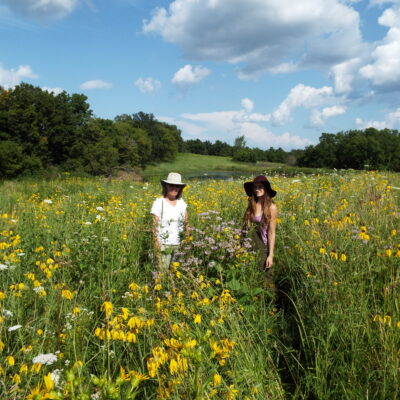Help plant, animal, and human communities thrive through our land stewardship.
Please support the Climate Land Leaders Initiative today!
Ecosystem Services
Climate Land Leaders are part of various research projects through universities, government and nonprofit organizations that are documenting the ecosystem services their lands are providing.
For example, Climate Land Leaders participate in the 1000 Farms Initiative, an ambitious research project that measures soil microbiology, water dynamics, plant communities, invertebrate diversity, bird diversity and habitat, insect communities and more.
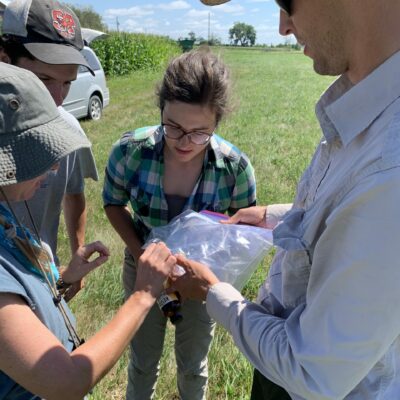
Improving soil health is a key component of Climate Land Leaders’ work. Climate Land Leaders take baseline soil measurements on areas where they will implement climate-friendly practices.
Through the years, they will be looking for increases in soil organic matter and soil organic carbon. Many Climate Land Leaders have benefited from one-on-one consultations with soil scientists Tiffany LaShae and Dr. Sharon Weyers.
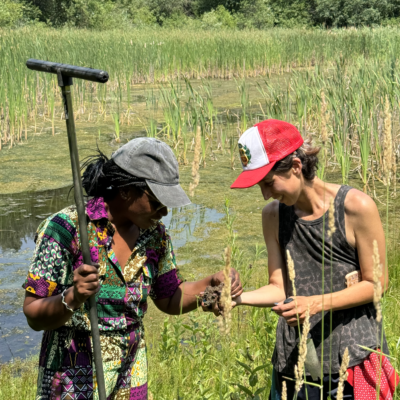
Woodlands – preserved, restored and well-managed – provide one of the highest impact climate solutions on the land.
Becky Lourey placed over 1,700 acres of mostly forest in a land trust that will permanently protect this powerful natural resource and support the wildlife that moves through it.
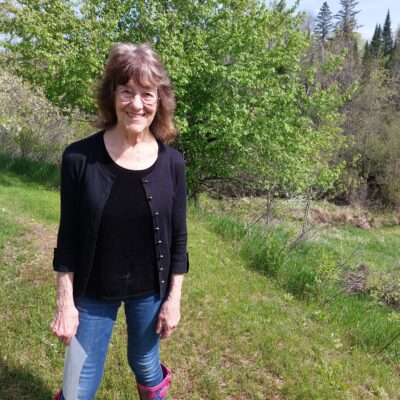
Dick Sloan is putting in a wetland designed to treat water flowing off of fields above the site. 25 acres of cropland will be taken out of production and around 16 acres of prairie planted to support the wetland.
Says Dick: “When you think about all the ground that drains into this, it’s about 600 acres. The wetland design factors this in, so it will reduce nitrates. The prairie that gets planted will create habitat. Maybe there will be wildlife that will find this little resting spot in all these corn fields.”
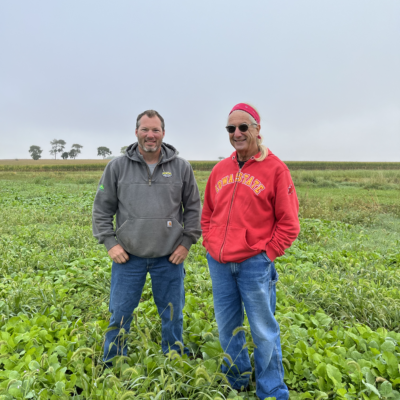
Mary Damm uses her Northeast Iowa farm to research plant diversity and productivity and soil carbon, nutrients and biology in her rotationally grazed pastures as part of a larger study on managed cattle grazing and grassland bird (Bobolink) nesting success.
Mary holds a PhD in Biology from Indiana University for research comparing plant diversity and soil carbon and nutrients in native and reconstructed tallgrass prairies in Iowa.
